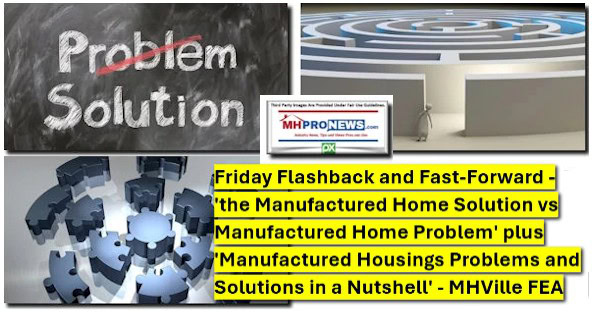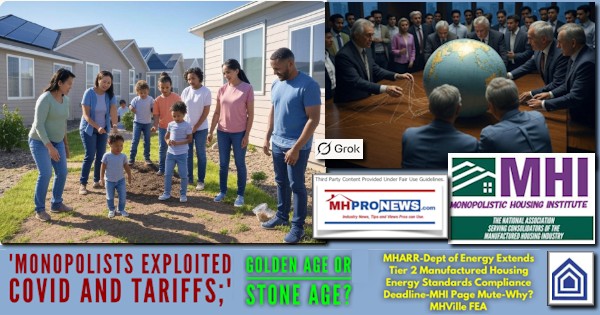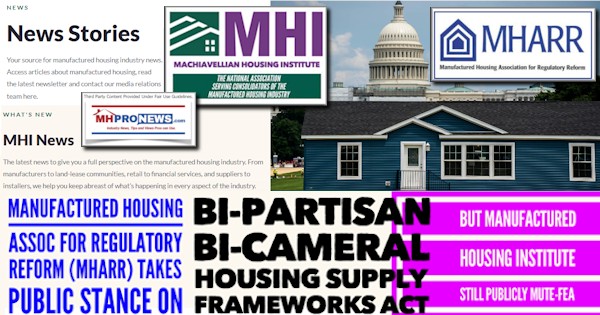 A report from MHI in Washington reveals that with partisan tensions easing, congressional negotiators are closer to a year-end deal that would address a range of expiring programs, from the Social Security payroll tax cut that has benefitted approximately 160 million workers, to long-term unemployment benefits, and Medicare payments to physicians. Senators will be working into the weekend on a final compromise measure. A host of additional popular tax-credit programs aimed at promoting energy efficiency— including the New Energy Efficient Tax Credit for manufactured homes which is scheduled to sunset this year are still being considered for inclusion in the year-end tax vehicle. Specifically, manufacturers who build ENERGY STAR homes are eligible to receive a $1,000 tax credit while modular home builders are eligible to receive a $2,000 tax credit by exceeding the International Energy Conservation Code (IECC) by 50 percent. In recent years, it has become the norm for Congress to authorize these tax breaks for a year at a time, allow them to lapse for a short time and then renew them retroactively. Despite protests that this practice creates uncertainty for taxpayers, lawmakers have generally concluded that retroactive extensions are sufficient because the tax filing season itself is backward-looking. MHI says because of the importance of the New Energy Efficiency Home Tax Credit, MHI is urging members to personally contact their Representatives to act quickly to extend these pro-growth, pro-job provisions. The lack of timely congressional action to extend these provisions would inject more instability and uncertainty into the economy and further weaken confidence in the marketplace.
A report from MHI in Washington reveals that with partisan tensions easing, congressional negotiators are closer to a year-end deal that would address a range of expiring programs, from the Social Security payroll tax cut that has benefitted approximately 160 million workers, to long-term unemployment benefits, and Medicare payments to physicians. Senators will be working into the weekend on a final compromise measure. A host of additional popular tax-credit programs aimed at promoting energy efficiency— including the New Energy Efficient Tax Credit for manufactured homes which is scheduled to sunset this year are still being considered for inclusion in the year-end tax vehicle. Specifically, manufacturers who build ENERGY STAR homes are eligible to receive a $1,000 tax credit while modular home builders are eligible to receive a $2,000 tax credit by exceeding the International Energy Conservation Code (IECC) by 50 percent. In recent years, it has become the norm for Congress to authorize these tax breaks for a year at a time, allow them to lapse for a short time and then renew them retroactively. Despite protests that this practice creates uncertainty for taxpayers, lawmakers have generally concluded that retroactive extensions are sufficient because the tax filing season itself is backward-looking. MHI says because of the importance of the New Energy Efficiency Home Tax Credit, MHI is urging members to personally contact their Representatives to act quickly to extend these pro-growth, pro-job provisions. The lack of timely congressional action to extend these provisions would inject more instability and uncertainty into the economy and further weaken confidence in the marketplace.
(Image Credit: Public Domain, U.S. Federal Government)

























